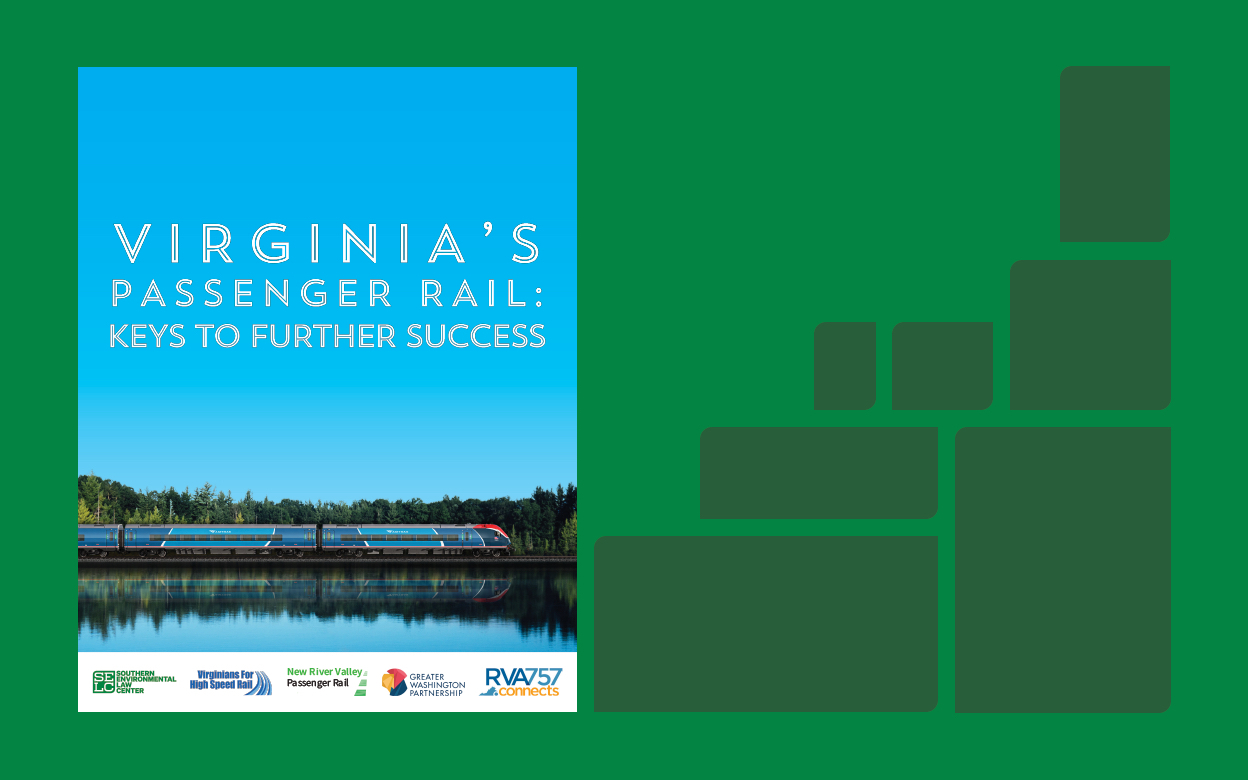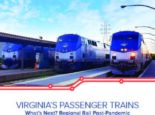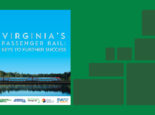Moving forward with rail and transit
Rail and transit are keys to clean, equitable transportation

Virginia’s Passenger Rail Works
After years of neglect, passenger rail in Virginia has been significantly expanded and the Commonwealth is currently served by eight round- trip, intercity regional trains. This report details the growth of passenger rail in the Commonwealth and future opportunities.
Public transit, freight rail, and passenger rail offer important benefits to the public and the environment. They help cut transportation pollution, increase energy efficiency, enhance quality of life, and improve economic competitiveness, and address transportation inequities. Increasing the speed, reliability, frequency, and quality of transit and passenger rail allows people to shift from vehicle trips to alternatives that significantly reduce greenhouse gas emissions and other air pollutants while reducing pressure to build new highways. Similarly, shifting freight from trucks to rail can substantially reduce pollution, congestion, and the need to add new highway capacity. Transit and passenger rail can also promote more compact, vibrant communities.
Providing cleaner alternatives to driving helps address equity issues, both by reducing the disproportionate pollution burden and health impacts imposed upon low wealth communities and communities of color, and by providing greater access to jobs and services to those who do not own cars or do not drive.
Modernizing rail and transit services
For too long, public transit and passenger rail have not been seen as a viable option for most people, and road projects have continued to receive the lion’s share of taxpayer dollars spent on transportation while the scope and quality of rail and transit service suffered. Yet public support for improved and expanded transit and rail service is strong and growing.
It’s not enough to say we need to reduce our reliance on driving – we need to provide viable alternatives. Improving rail and transit service not only provides another way to get around but helps increase physical activity, improves quality of live, and is more affordable than driving.
BRIAN GIST, SENIOR ATTORNEY
Our work
SELC works with community partners at the federal, state, metro, and local levels to promote policies, projects, and funding that increase and improve rail and transit service. We support high quality, reliable transit service; free or reduced-fare transit; encourage walkable, transit-oriented communities in cities, towns, and urbanizing areas; and work to secure funding for transit solutions tailored to more rural areas.
Our work in recent years has helped achieve significant reforms such as establishing dedicated funding for passenger rail, increased transit funding, and improving ways to determine which transportation proposals receive funding. We must build upon these successes to keep our region moving forward.


